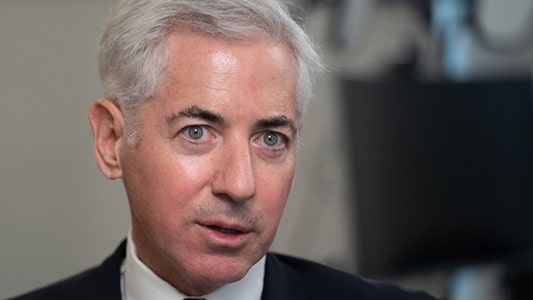Bill Ackman’s investment firm, Pershing Square USA, recently withdrew its Initial Public Offering (IPO), a significant move that has drawn attention from investors and market analysts alike. Let’s explore the reasons behind this decision, its implications for the market, and the broader context of Ackman’s investment strategy.
Background of the IPO
Pershing Square USA initially aimed to raise substantial capital through an IPO, targeting up to $25 billion. The shares were priced at $50 each, reflecting a strong confidence in the market’s appetite for Ackman’s investment vehicle. This IPO was poised to mirror the success of Warren Buffett’s Berkshire Hathaway, which has been a long-standing inspiration for Ackman.
Reasons for Withdrawal

Market Conditions
The primary reason for the withdrawal appears to be unfavorable market conditions. Recent volatility and uncertainty in the financial markets have made it difficult for large IPOs to achieve their fundraising targets. The macroeconomic environment, marked by inflation concerns and interest rate hikes, has also contributed to investor wariness.
Fundraising Challenges
Ackman had to slash the fundraising target for the IPO, indicating challenges in attracting sufficient investor interest. This reduction suggested a lower confidence level among institutional and retail investors, possibly due to recent market performance and economic outlook.
Implications for Investors
Confidence in Leadership
Bill Ackman is known for his strategic acumen and bold investment decisions. While the withdrawal might initially be seen as a setback, it also reflects Ackman’s prudence in avoiding a poorly timed market entry. Investors often view such decisions as indicative of strong leadership, capable of adapting to market conditions.
Market Reaction
The immediate market reaction to the withdrawal has been mixed. Some analysts see it as a prudent move, avoiding potential underperformance, while others express concerns about the implications for Ackman’s future fundraising capabilities. The broader market’s performance in the coming months will likely influence the perception of this decision.
Broader Context
Comparison with Previous IPOs
Pershing Square’s withdrawal is not an isolated incident. Several high-profile IPOs have faced similar challenges recently, highlighting a trend of cautious investor sentiment. Comparing this scenario with successful IPOs in the past can provide insights into the changing dynamics of market confidence and investment strategies.
Strategic Adjustments
Ackman has a history of strategic adjustments based on market conditions. His decision to withdraw the IPO aligns with his broader investment philosophy of risk management and opportunistic investing. By postponing the IPO, Ackman retains the flexibility to re-enter the market when conditions are more favorable.
Future Prospects
While the withdrawal marks a pause in Pershing Square’s immediate plans, it does not close the door on future public offerings. Ackman’s track record suggests that he will continue to seek optimal opportunities for raising capital and expanding his investment portfolio, adapting to market trends and economic shifts.
Conclusion
The withdrawal of Pershing Square USA’s IPO underlines the complexities of navigating the current financial landscape. It highlights the importance of timing and market conditions in the success of large-scale public offerings. Bill Ackman’s decision, though unexpected, demonstrates a strategic pause rather than a retreat, reflecting his adaptability and long-term vision in investment management.

Meet Suhas Harshe, a financial advisor committed to assisting people and businesses in confidently understanding and managing the complexities of the financial world. Suhas has shared his knowledge on various topics like business, investment strategies, optimizing taxes, and promoting financial well-being through articles in InvestmentDose.com


